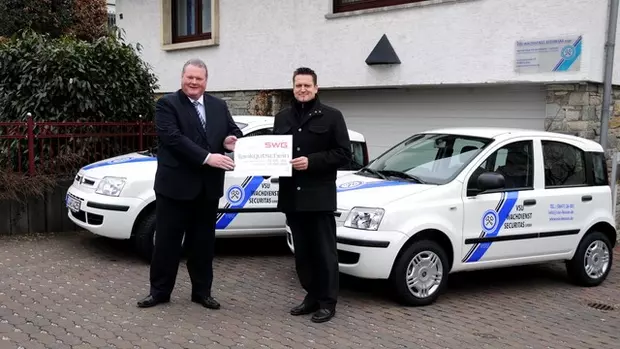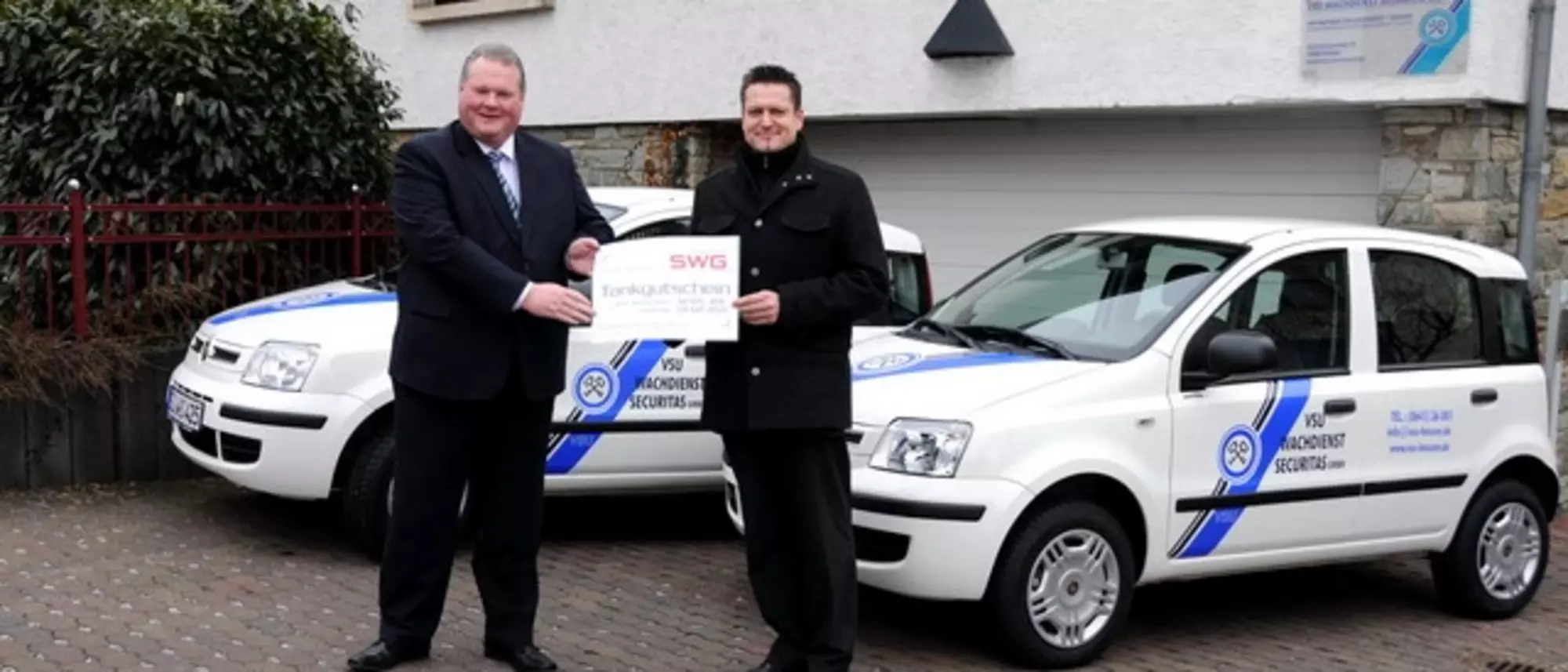
With the security service provider "VSU Wachdienst Securitas" from Giessen, another company from the city has decided in favour of economical natural gas vehicles. The security service is being supported in its switch to this alternative fuel by Stadtwerke Gießen: On Tuesday, 9 February, Michael Rösner, Head of Private and Commercial Customer Sales at SWG, symbolically presented a natural gas tank voucher to VSU Managing Director Frank Büntig. "We expect the two new vehicles to give us a considerable cost advantage," explained Frank Büntig on this occasion. The environmental aspect also played a significant role in the decision. With the subsidy from Stadtwerke Gießen, VSU can now refuel its gas vehicles for a full year at half the current natural gas price at the Aral petrol station in Marburger Straße.
"Stadtwerke Giessen's natural gas car subsidy programme is also expressly open to private individuals," emphasised Michael Rösner. In principle, all series-produced natural gas vehicles with a new registration from 1 March 2009 are eligible, including used vehicles. Further information on the subsidy programme is available on the Internet at www.energiessen.de and by telephone on 0641 708-1177 or directly at the SWG info centre on Giessen's market square. There, the experts from the municipal utilities also provide free, manufacturer-independent advice on the subject of mobility with natural gas.
Natural gas is cheaper to run
Vehicles optimised ex works to run on natural gas are characterised by very low pollutant emissions compared to petrol and diesel vehicles. In particular, natural gas vehicles are ahead of petrol and diesel vehicles in terms of particulate matter and nitrogen oxide emissions. The advantages of natural gas as a fuel not only benefit the environment, but also the vehicle owner's wallet: thanks to the lower price per kilometre, fuel costs can be reduced by up to 30 percent compared to diesel; compared to petrol vehicles, this can even be up to 50 percent.

